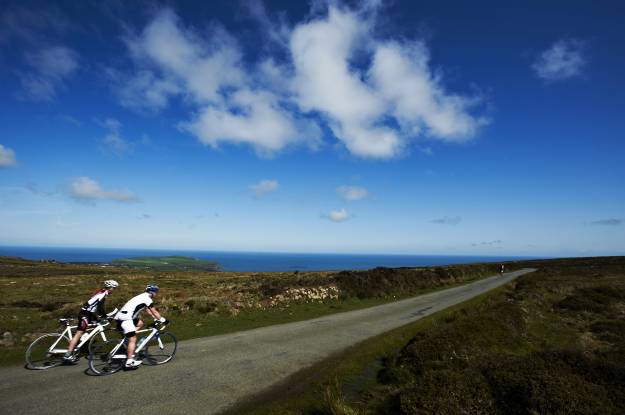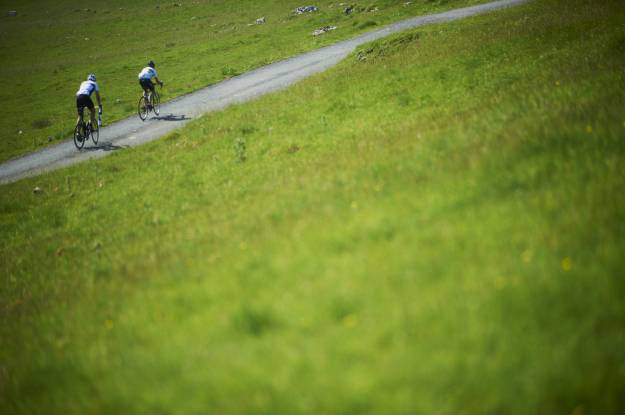“One death is one too many”. British Cycling urges Government to improve road safety for cyclists through a range of ‘mutual respect’ measures.
Greater mutual respect between motorists and cyclists will make the road a safer place to ride a bike. That’s the clear message from British Cycling, the National Governing Body which oversees all aspects of cycling, in a summary of findings published today based on feedback received from its members on road safety matters.
Among the potential solutions highlighted to make mutual respect a reality were to include greater cycle awareness in the driving test and Highway Code, ensure better enforcement of the law on mobile phone use while driving, and improve poorly laid out roads and junctions which pose a danger particularly to inexperienced cyclists.
Ian Drake, Chief Executive of British Cycling, said: “As more people take to their bikes, we take seriously our responsibility to ensure they are able to do so in a safe environment. The reality is that the number of cycling deaths and injuries on the roads is decreasing and evidence suggests that the more people who cycle, the safer it becomes. However, for us, even one death is one too many and by listening to our members we can better understand what needs to be done to help create the necessary mutual respect required between motorists and cyclists to ensure both can use the roads in a safe manner.
“It’s essential that we get away from this sense of ‘them and us’ between motorists and cyclists. Most people who ride a bike also drive a car which suggests there should already be some mutual understanding. Now more needs to be done to build on this and create culture in which all road users can better respect each other. And it’s important to stress that cyclists have as much of a role to play in this as motorists, by ensuring they adhere to the rules of the road with regards to things like stopping at red traffic lights and signalling correctly.”
Download British Cycling Road Safety Report (5MB)
Other key findings published by British Cycling include:
In terms of greater cycle awareness in driving tests, the two areas highlighted for particular attention were that drivers should know how to overtake cyclists safely, and how much space to allow cyclists.With regards to road layouts, the most common complaint was about cycle lanes that end too abruptly.As well as the compulsory introduction of improved mirrors to reduce blind spots on HGVs, it was widely felt that better education for drivers to ensure they look out for cyclists and better education for cyclists about the risks of cycling on the inside of HGV would help reduce the risk of HGV-related accidents.The reduction of urban speed limits from 30mph to 20mph would reduce the severity of injuries sustained in any accidents, although it was acknowledged that drivers might become agitated if they had to drive at that speed.
Ian Austin MP, British Cycling member and Co-Chair of the All-Party Parliamentary Cycling Group, said: “I'm very pleased to see British Cycling, of which I have been a member for many years, making its voice heard in this sphere and I look forward to playing my part in Westminster to get the changes needed.”
The findings were also welcomed by Rob Gifford, Executive Director of the Parliamentary Advisory Council for Transport Safety, who said: “This is very consistent with what we know about how best to further improve road safety and I think that the overall theme that measures should promote mutual respect and understanding between road users is exactly right.”
Working closely with its personal injury solicitors, Leigh Day, and other key stakeholders, British Cycling will take forward the views of its members to influence politicians and policy makers to make cycling safer. This has already begun with engagement with the Transport Minister and all the London Mayoral candidates on the key issues,.
Nicole Cooke, Olympic Road Race Champion, said: “We know that personal safety, and the perceived risks associated with cycling, can be a barrier to getting on a bike, especially amongst women. If we want to continue to see participation grow we need to address this and make tangible changes to ensure the roads are safer for cyclists. Through greater respect we can ensure more people can enjoy riding a bike which has got to be a good thing to strive towards particularly in the year of a home Olympic and Paralympic Games.”










